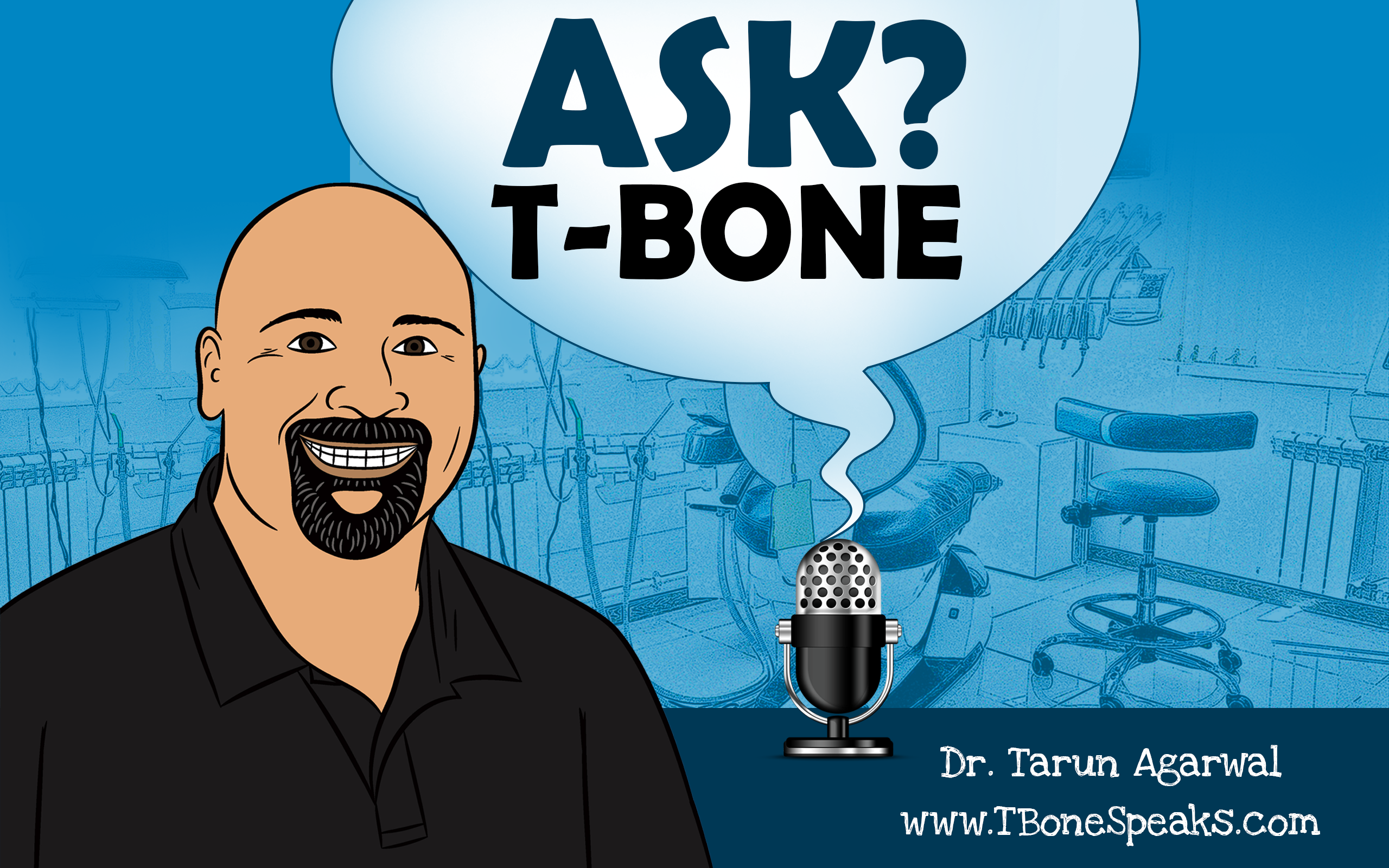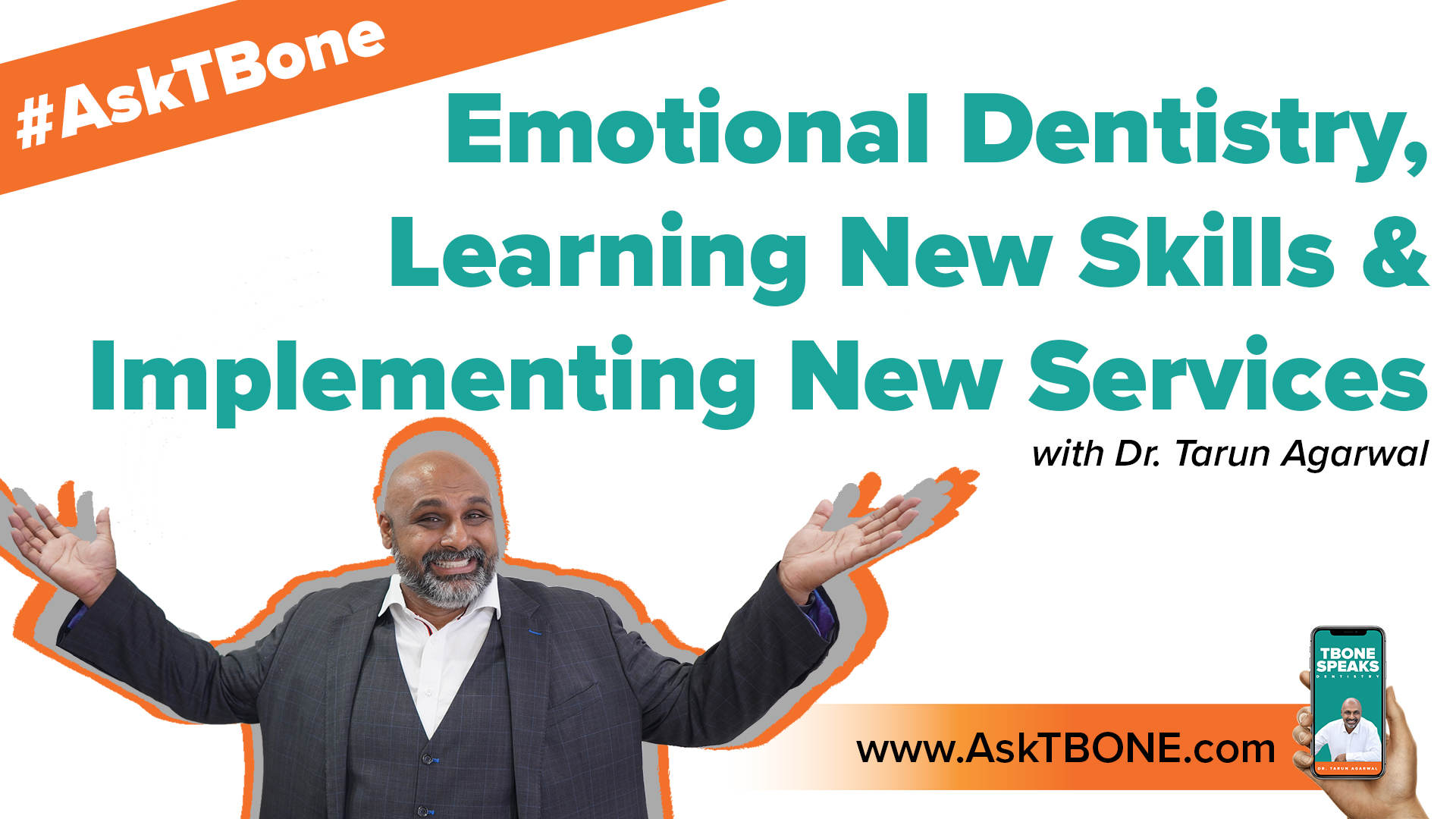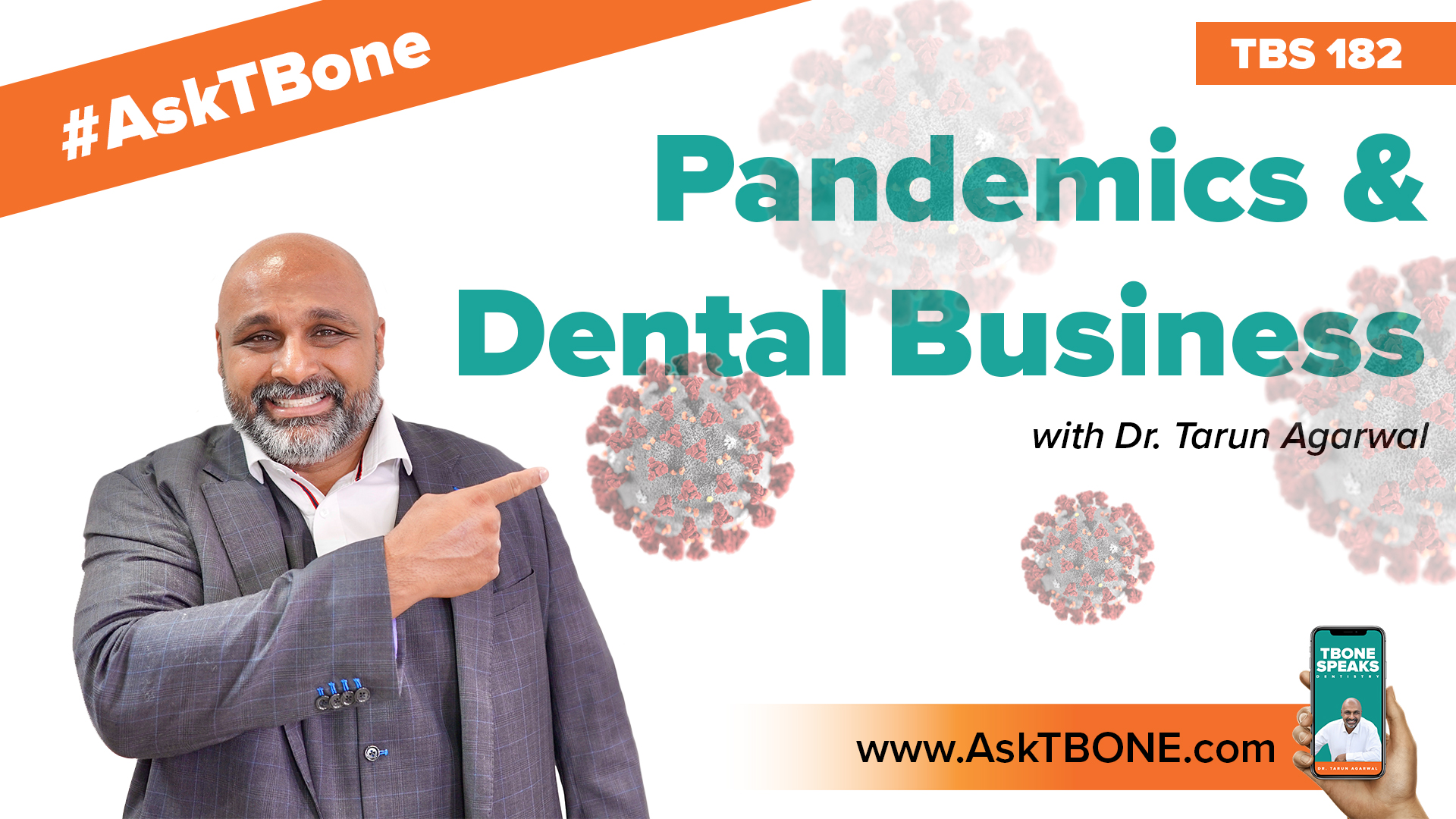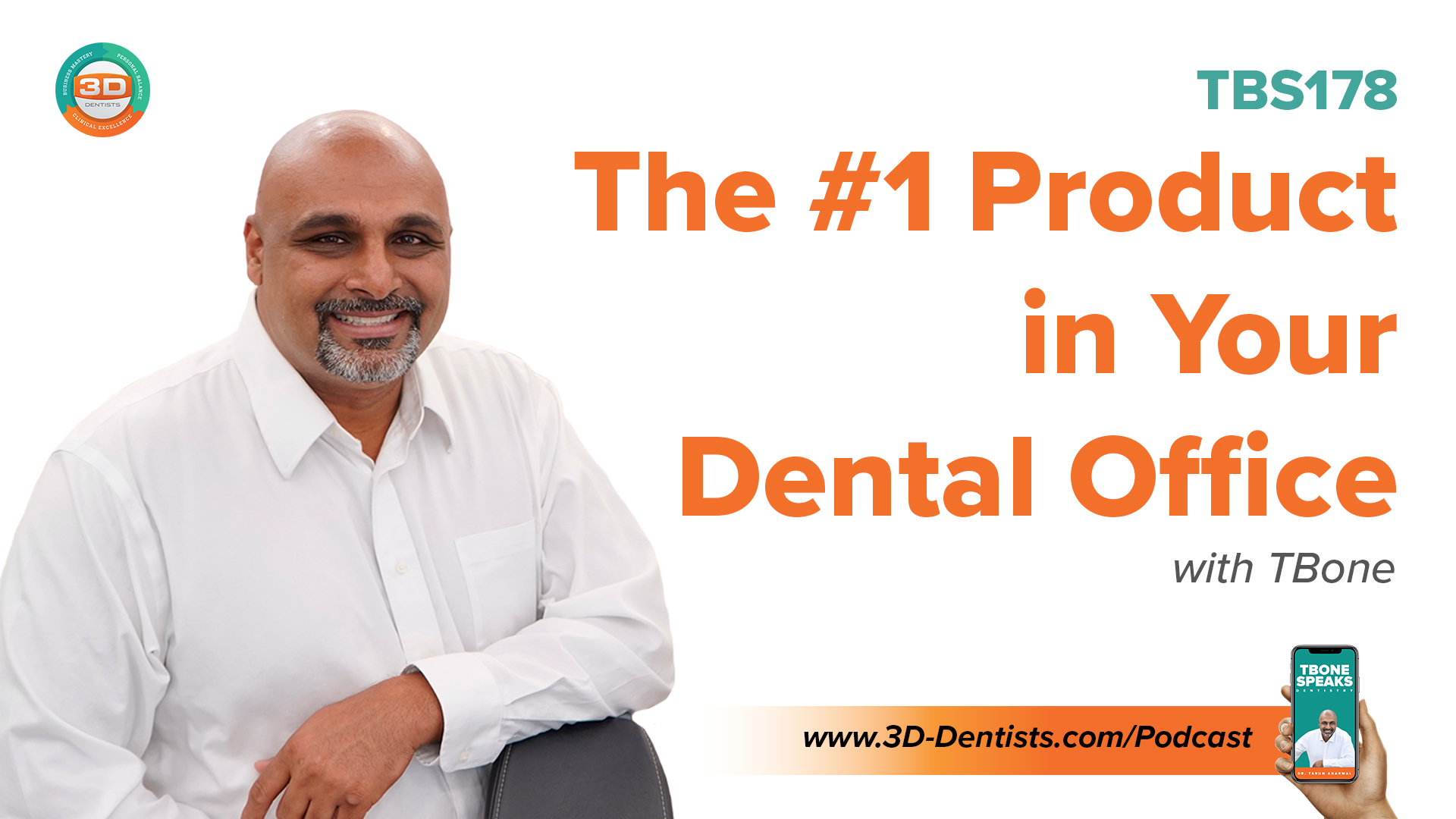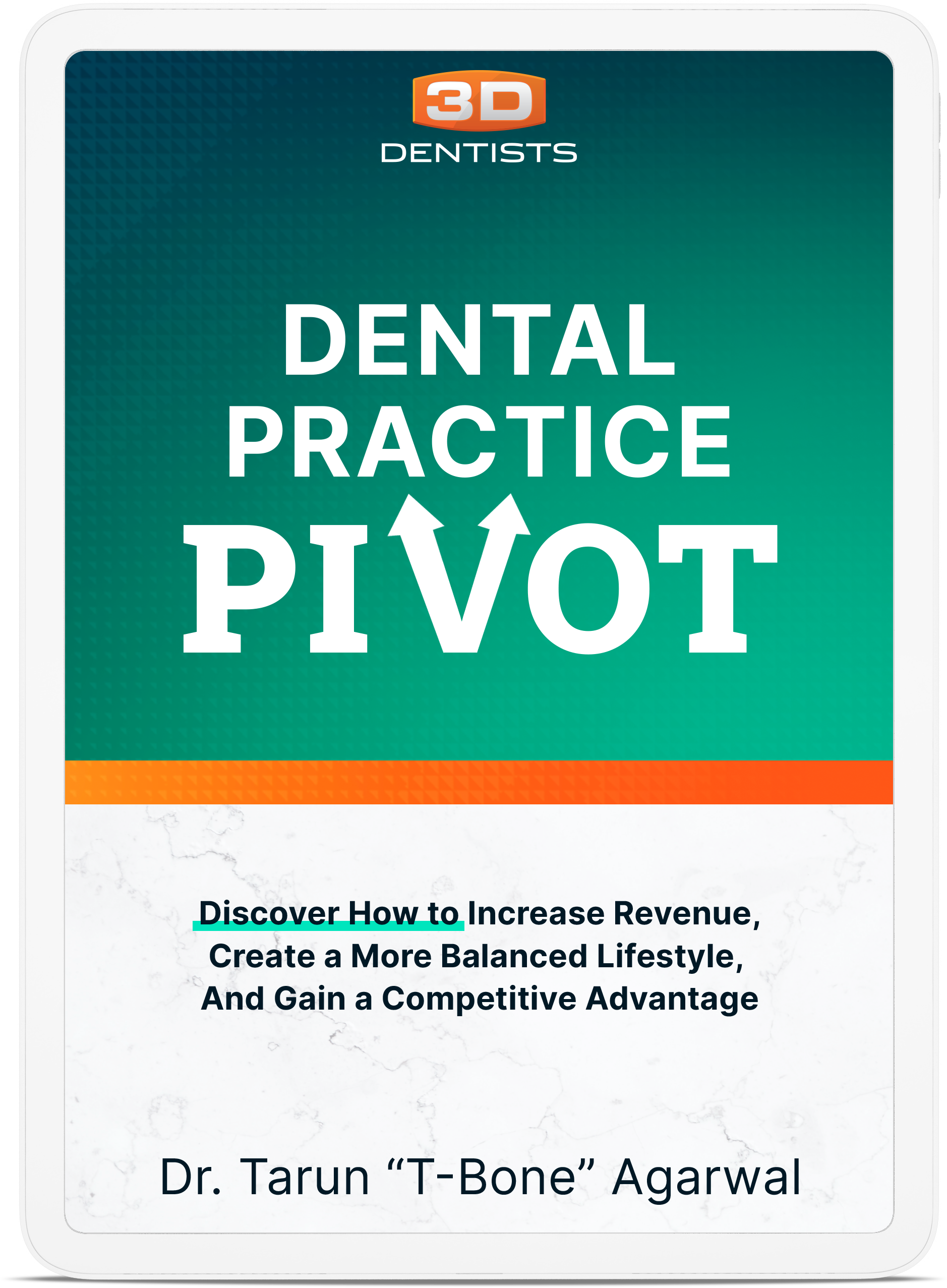Failures are part of life. As practitioners we have to start to admit them and talk about them openly with our patients. On this #AskT-Bone section of T-Bone Speaks PodCast, we talk about how we can overcome our failures and build confidence with our patients.
Listen to the Full Episode:
Full Episode Transcript:
Welcome to T-Bone Speaks with Dr. Tarun Agarwal where our goal is to change the way you practice dentistry by helping you achieve clinical, financial, and personal balance. Now, here’s your host, T-Bone.
Hello and thank you for tuning in to another episode of T-bone speaks. And this will be another “Ask T-bone” segment.
So today we have a quite an interest question.
Is more of philosophy than anything else, but I think it will be an important one to address and certainly I want to preface this by saying I am not right I am not wrong, this is how we all deal with things and how we choose to present ourselves to our patients. But It would be very nice to cover this, so that we can all see what is going on.
So here is our question that was submitted, I would like to read it first:
Hi Tarun, Fellow 6 year UMKC student here, few years behind you though I was so, a passed did really crossed that makes me feel old by the way. Anyway loving the podcast, thank you very much.
The most recent episodes about adding procedures was really excellent in my book. We really recently did a podcast on how to effectively add new procedures to a practice. I think those are some great tips on how to add things. I really like the part about fees and being able to quote them reliably and confidently. I haven’t done that in the past, which is probably limiting my growth.
My question about the episode:
One of the things you mentioned was about buy in confidence and confidently talking about your procedures. Like you have mentioned which I appreciate. You have failures in your practice. Of course I have as well. And it really take a toll on me. Sometimes I have a tough time getting pass them. At any rate, when I’m doing a case presentation, I try to be really honest with the patient about success rates, failure rates, and do discuss honestly things that haven’t gone right. I think I have lost some sales on that process of being honest. I think I can probably have a higher success rate, if I focus more on the successes than the failures. However at the same time, I really feel like I have minimized any chance of either delegation, having to issue refunds or having really unhappy patients by discussing the pitfalls. When those failures happen, patients do tell me “well, you said this could happen” and thus, don’t lose confident with me when something needs a repair or replacement.
So, could you talk about how you go about a case presentation to maximize its effectiveness while minimizing your risks. In addition, do you have any copying mechanisms for failures that have allowed you to keep your confidence high and light of upset failures.
Thank you for submitting this. And you know unfortunately I think our speaking gurus, most often don’t talk very openly about the failures. And they may share the failures, but they don’t talk about the psychology of failures. You know, listen, failures happen. It’s call “practice”, “private practice”. Is not called “private perfection”. And when failures happen, to me the best thing to do is simply admit them, be open about them, be honest with your patient about what happened; And then honestly you have to look it back and retrospectively go back and say what did I do to cause that failure, what did I not do to cause that failure. What part of that failure is on the patient condition? What part of that failure is on my unwillingness to have tough conversations with the patient? And then you need to let it go. And it is unbelievably hard to let it go. It is taken time. I remember my first cortical failure, and it wasn’t a failure. It was a patient experience failure. I just delivered one of my first sixteen units veneers cases upper low veneers, it was a tough delivery, the patient had a hard time; The cosmetics look good, the patient got up and said “man, I really wish I never did this”. That was just a horrible experience. My heart sunk, my stomach sunk, I moved around for many many days, and it took a long time before I was willing to do another veneer case. This things are part of life. And we have to move forward. Now lot of that comes with not doing things that you are not confident with, getting the education, understanding that you should start with more cortical simply cases, and progress to more complex cases, along with taking the education that gets us there. So, failure is a part of life. I mean they go to happen. If you are not having failures, you are simply not doing enough, or you are lying to yourself , or you have this amazing ability to block things out. So, I want to talk about what I call verbal diarrhea. Now, I think it’s important to disclose things to our patients. To tell them what the facts are, what the risks are, means call our part of the ethical duty to go over risks, benefits and alternatives. However, sometimes it sounds like this is maybe a case of verbal diarrhea. So what I try to do? I deal with this myself, and I also deal with our associate partners in our practice. As a young practitioner, his tendency is to do things like they did in dental school, which is, to go through and literally bore your patients to death with all kind of technical details. The philosophy I like to employ is: I provide answers to the questions that patients ask. So for example with their dental implant: I simply talk about the dental implant, how wonderful is going to be, how is going to make a difference for them. And then if the patient ask questions I will address those specific questions. Now what happen when the patient doesn’t ask a question? That is important to cover. For example, failures, success rates. That is why I would interject and allow them to know success and failure. Mrs. Jones, just so you are aware, nothing in life is perfect or guaranteed to work. Dental implants, scientifically show, that there is about a 92% success rate. That means roughly one in ten would have a failure. In our practice we found that that’s about what we expect, ok? We are going to do everything in our power using all this wonderful technology we have, using clean technique to make sure that we minimize your risk of failure. Do you have any question for me?
I don’t want to go into details about my failures, and when things have happened and how things have happened. But I do want to do my ethical duty, of walking them through failures. Now let’s say for example. I’m doing an immediate placement. And I look at my CBCT and I question whether not an immediate placement is possible. And my patients doesn’t ask me about that. That is when I would say, Mrs. Jones, I want to point out something to you. 80%-90% of the time, we are able to take a tooth out and put an implant in right away. But there is a few times where it becomes a little bit difficult. And Mrs. Jones, this is one of those cases. I’m confident that it would be able to place this implant and they will take a tooth out. But, there is a chance that based on what we find, a gain time decision, that we may not be able to place this implant. Would that be ok with you?
And it’s about being honest and open and our listener our question that was submitted did talk about that. And that is an unbelievably noble part of what we need to do. And that is, give our patients and be honest with that patients. You know, honest about that things don’t always work. We don’t necessarily have to be opened up for all about all our failures, because we can’t control our failures, not all our failures are our part. We don’t know of medications, the patients along with their habits. We don’t know what medications are, we don’t know what the habits have been, how long they have been doing things, the condition of their bones, the condition of their tooth. The decay rate, how much coke they drink and how much tea they are drinking, all those things that affect the longevity of our restorations and the work we do. So, always be honest with your patients about successes and potential non successes -I don’t want to use the word failure, potential non successes- and answer the questions that patients have. If they don’t ask the right questions, point out those things that are most pertinent and important and ethically responsible for that particular case. Don’t go into a diatribe, please. Let’s not have verbal diarrhea about that.
So hopefully we have answer this question and thank you very much. As a fellow UMKC student, I congratulate you on graduating from a wonderful dental program, I did enjoy my time in Kansas City, and if you have any additional questions, please don’t hesitate to reach out. That is what we are here for. Thank you very much.
Thanks so much for listening to T-Bone Speaks with Dr. Tarun Agarwal. Remember to keep striving for excellence and we’ll catch you on the next episode.
Enjoy The Show?
- Don’t miss an episode, subscribe via iTunes, Stitcher or RSS.
- Leave us a review in iTunes
- Join the conversation by leaving a comment below!

